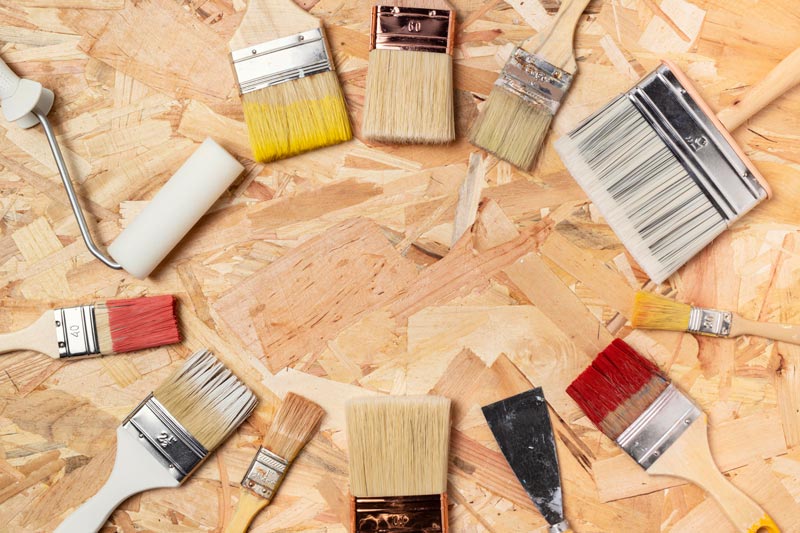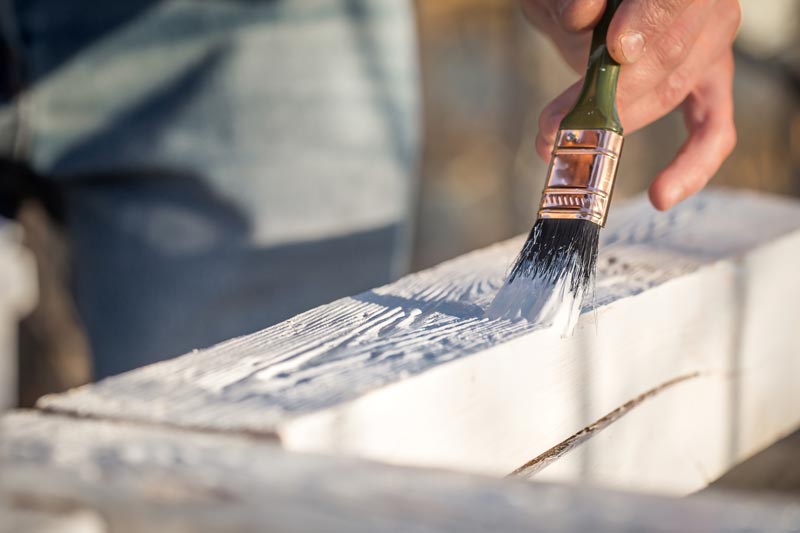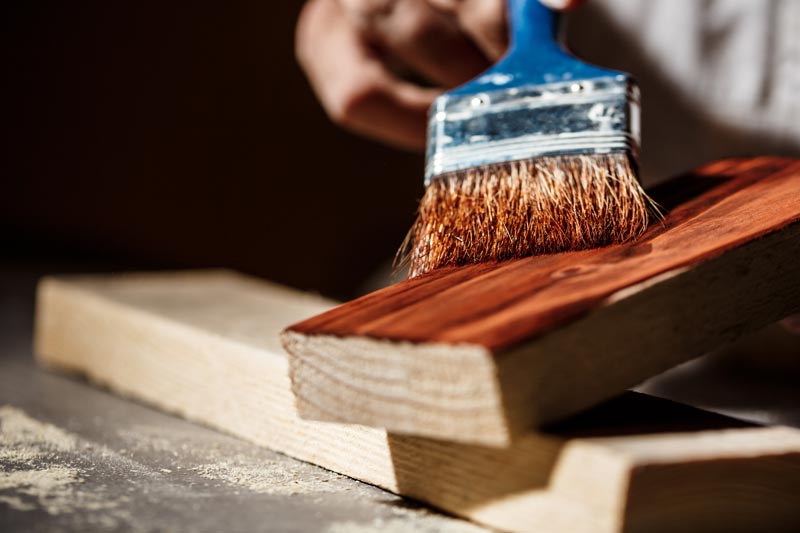
Proper preparation is critical to achieving a smooth and flawless paint finish on your wood surfaces, as a professional West Hartford painting company does. Whether painting furniture, decks, or siding, taking the time to prep wood for painting can make all the difference. This guide will provide a comprehensive outline of the steps in preparing wood for painting, the tools and materials needed, and tips and tricks to achieve the best results.
Before we dive into the steps for preparing wood for painting, it is essential to understand the different types of wood and their properties that can affect paint adhesion. Some common types of wood include softwoods like pine and cedar, hardwoods like oak and cherry, and engineered wood products like MDF and particleboard. The type of wood you are working with will determine the appropriate preparation techniques and materials needed.
According to a reputable West Hartford painting company, another thing to consider is the moisture content of the wood. If the wood is too wet, it can cause the paint to peel or bubble. Therefore, it is essential to let the wood acclimate to the environment where it will be painted.
To prepare wood for painting, you will need several tools and materials. Here is a list of some of the items you will need:
However, you can hire a professional West Hartford painting company for more wood preparation and painting tools. They have the resources and expertise to ensure a high-quality wood painting finish.
Now that you have gathered the necessary tools and materials, it is time to begin preparing the wood for painting. Here are the steps involved in the process:
The first step in preparing wood for painting is to clean the surface. First, remove dirt, dust, or debris from the surface. Next, use a soft brush or cloth to remove loose debris. Before proceeding to the next step, rinse the surface thoroughly with water and ensure it’s scorched.
After the wood is clean and dry, it is time to sand the surface. Sanding helps create a smooth surface for the paint to adhere to. Start with coarse grit sandpaper, such as 80 or 100 grit, and sand in the direction of the wood grain. Use a sanding block to ensure an even sanding surface. After the initial sanding, switch to finer grit sandpaper, such as 120 or 150 grit, and repeat the sanding process until the surface is smooth and free of rough spots or imperfections. Finish with fine-grit sandpaper, such as 220 or 240 grit, for final smoothing.

Once the surface is sanded and smooth, it is time to fill in any cracks, holes, or other imperfections in the wood surface. First, apply a small amount of wood filler to the imperfection using a putty knife. Next, smooth the filler and let it dry according to the manufacturer’s instructions. Once dry, sand the surface lightly to smooth out any excess filler.
After sanding and filling the surface, it is time to apply primer. Primer helps to create a smooth and even surface for the paint to adhere to and improves the durability of the paint job. Use a high-quality primer appropriate for the wood surface you are painting. Follow the manufacturer’s instructions to apply the primer with a brush or roller. Wait until the primer is completely dry before moving on to the next step.
After the primer is dry, it is time to sand the surface again. Use fine-grit sandpaper, such as 220 or 240 grit, and lightly sand the surface to ensure a smooth and even finish. Be sure to wipe away any dust or debris with a clean cloth before moving on to the next step.
Now it’s time to paint the surface. Again, use high-quality paint appropriate for the type of wood surface you are painting.
Do you need help determining which type of paint to use? Call a professional West Hartford painting company. They can assist you in choosing the right wood paint for your project.
Apply the paint with a brush or roller, following the manufacturer’s instructions. Be sure to apply the paint evenly and avoid drips or puddles. Allow the paint to dry completely before applying a second coat if necessary.
If you want to protect the paint job further, you can apply a sealant over the painted surface. A sealant helps to protect the paint from scratches, stains, and weather damage. Use a high-quality sealant appropriate for the type of paint you use. Then, apply the sealant with a brush or roller, following the manufacturer’s instructions.
When people opt to DIY instead of hiring a West Hartford painting company for wood prep and painting, they make several common mistakes. Here are a few mistakes to avoid:
Preparing wood for painting can vary depending on the wood surface you are working with. Here are a few tips from the best West Hartford painting company for preparing specific wood surfaces:

Preparing wood for painting is crucial in achieving a flawless paint finish. By following the steps outlined in this guide, you can ensure that your wood surface is adequately prepared for painting and that your paint job will look professional and long-lasting. Remember always to use high-quality materials and take your time to ensure that each step is done correctly.
If you need help preparing wood for painting or any other painting projects, consider hiring a professional West Hartford painting company like West Hartford House Painting Experts. With their expertise and experience, they can help you achieve the perfect paint finish for your wood surfaces. Contact them today to schedule a consultation or to request a quote.